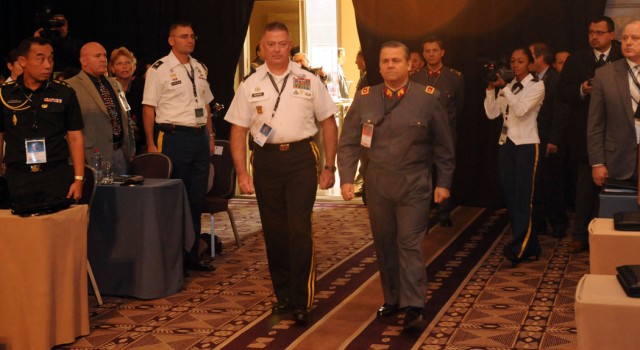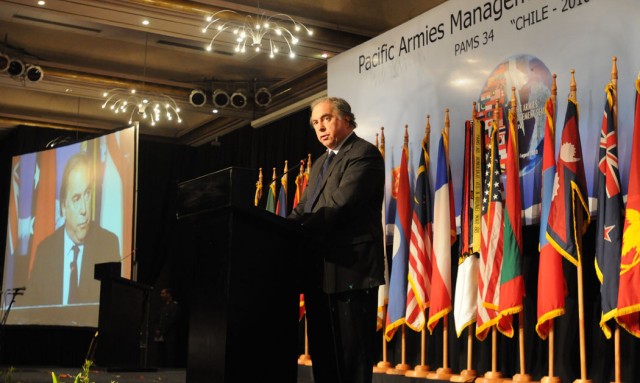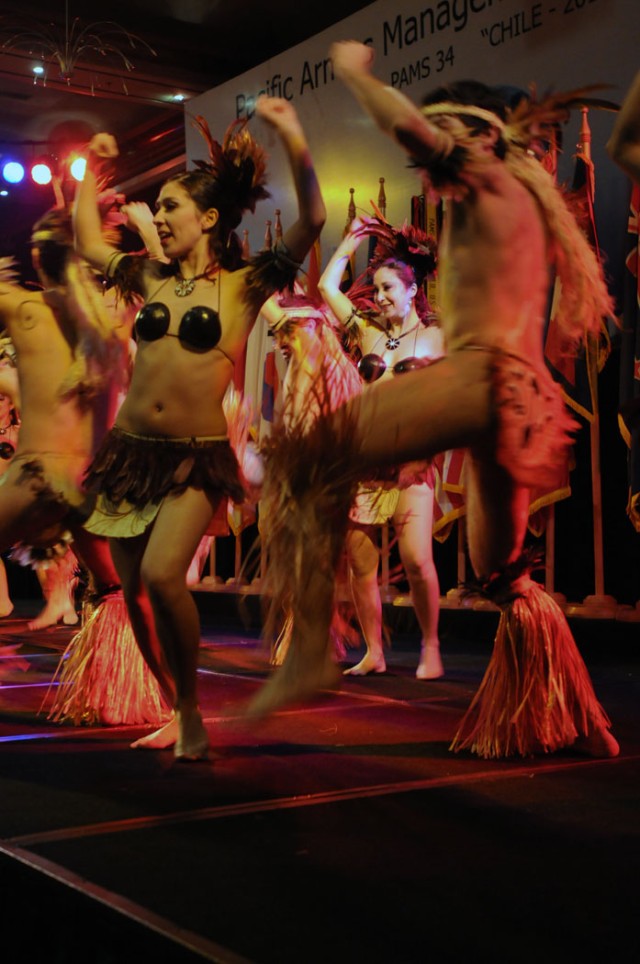Santiago (August 2, 2010) - Senior officers from 25 nations traveled to Santiago to discuss the role of land forces to combat transnational threats in the Asia-Pacific region, as part of the 34th iteration of the Pacific Armies Management Seminar.
The Asia-Pacific region is vast in both land and culture with every major language spoken, every major religion practiced and seven of the top 10 largest armies in the world. These differences have long caused strife among many of the populations across the region.
In an effort to build understanding, interpersonal relationships, and leadership, PAMS was created by the U.S. Army to bring together senior leaders from the Asia Pacific region.
"The natural and geographical distances, along with cultural differences between the regions and people present challenges," said Gen. Juan Miguel Fuente, Chilean army commander in chief. This seminar represents a growing process of integration between the nations.
PAMS is an annual multinational military seminar, which provides a forum for senior-level officers from regional ground forces and security services. Since the seminar's beginning in 1978, PAMS has been considered USARPAC's most important Theater Security Cooperation Program for the region. This year's theme is Transnational Threats in the Asia-Pacific: Defining the role of land forces.
The week-long conference, allows for discussion and the exchange of ideas in order to help promote peace and stability in the region and develop interpersonal relationships.
"Nations in the Asia Pacific Region must be prepared not only to defend our home countries from traditional attacks, but also to address nonmilitary threats," said Brig. Gen. John E. Seward, deputy commanding general, U.S. Army Pacific.
The threats Seward spoke of included terrorist activities; trafficking of drugs, humans, or weapons; natural or man-made disasters; pandemic disease; and environmental pollution and climate change.
"The task of security is a collective undertaking," said Fuente.
Hosting this year's PAMS is both the EjAfArcito de Chile, or National Army of Chile and USARPAC. The National Army of Chile has consistently sent a national delegation to PAMS since 2006.
While Chile is not considered a Pacific nation, it's Pacific coastline reaches an approximate 3,000-miles and the country's interests and state of influence with Asian-Pacific nations run the gamut from economic trade to security of Chile and the Asian-Pacific region. In addition, the U.S. Army and the Chilean army have developed a relationship through numerous partnership exercises and cross training activities. The relationship between USARPAC and the Chilean army is steadily growing with increased levels in Chilean Army support and observers in USARPAC events and exercises. Most recently, a delegation of Chilean Army observes attended Cobra Gold 2010 in Jomtien, Thailand.
These growing relationships have allowed Chile to establish a firm foothold within the Pacific region.
"In effect," said Fuente, "Chile supports prosperity, growth and development in the Asian-Pacific Region. Chile has participated in the Asia-Pacific Economic Cooperation, the Council of the Pacific Basin and the Latin American Corporation Forum-Asia Del Este. Chile's growing influence in the region presents security challenges, which are analogous to the issues faced in Asian countries."
Both Seward and Fuente aid they are positive important issues and solutions will be addressed during the seminar. PAMS is scheduled from Aug. 2-6.






Social Sharing